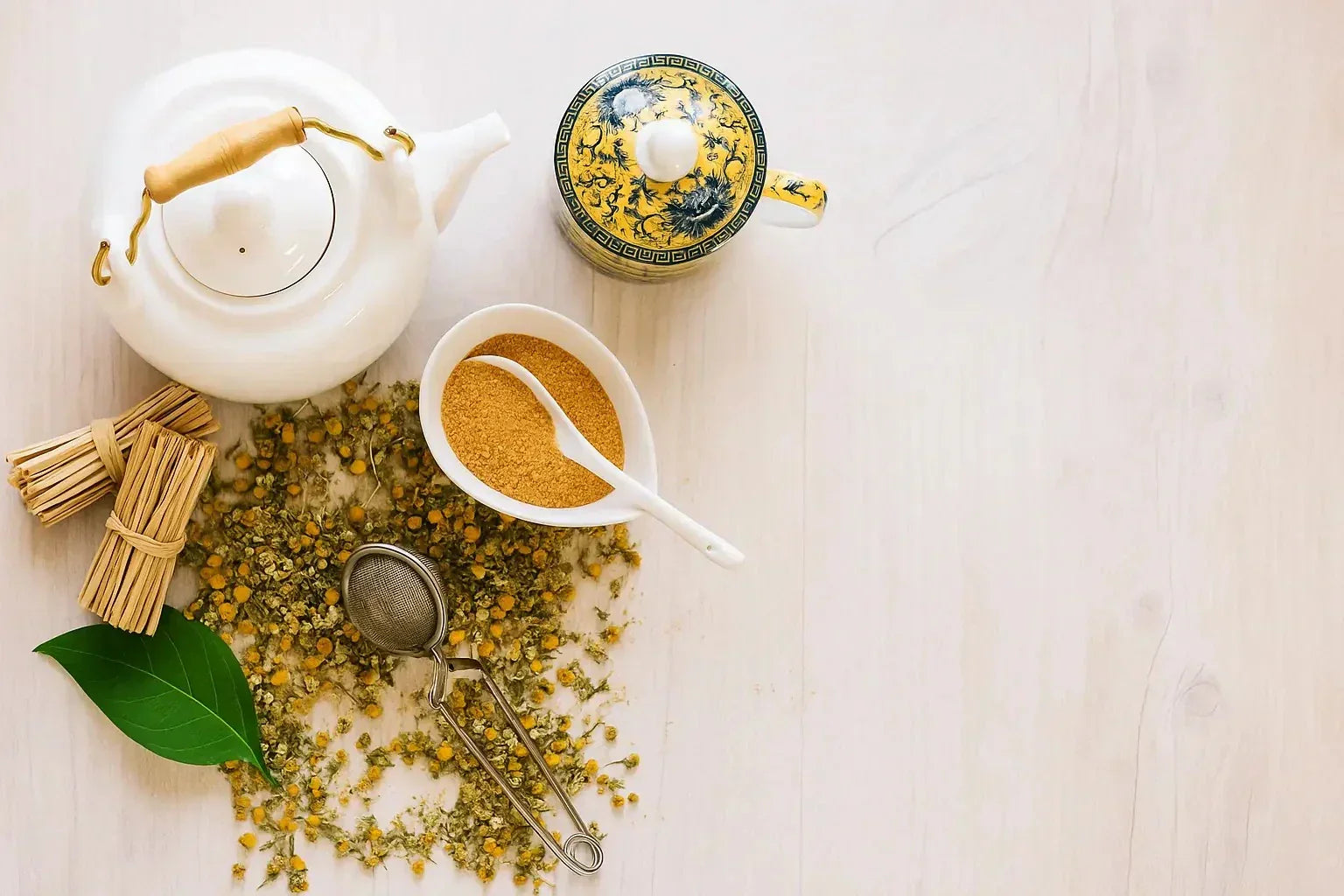
How Herbal Teas Can Naturally Support Digestion
Digestive health plays a central role in overall well-being. A balanced digestive system not only helps the body absorb essential nutrients but also boosts immunity, improves energy, and keeps everyday discomforts like bloating and acidity at bay. While modern medicine offers solutions, many people are turning to nature’s remedies—and herbal teas are at the forefront.
For centuries, cultures around the world have used herbal infusions as gentle, effective aids for digestion. From soothing the stomach to reducing inflammation, these teas provide both comfort and long-term benefits. In this blog, we’ll explore how herbal teas naturally support digestion, the science behind their effectiveness, and some of the best herbal blends you can include in your wellness routine.
The Link Between Herbal Teas and Digestion
Herbal teas are made by steeping roots, leaves, flowers, or seeds of medicinal plants. Unlike traditional tea (green or black), they are naturally caffeine-free and rich in bioactive compounds. These compounds—like polyphenols, flavonoids, and essential oils—offer therapeutic benefits that directly influence the digestive tract.
Key digestive benefits of herbal teas include:
-
Stimulating the production of digestive enzymes.
-
Relaxing intestinal muscles to ease bloating and cramps.
-
Reducing inflammation in the gut lining.
- Supporting gut microbiota for better nutrient absorption.
Science-Backed Benefits
Research has shown that herbal teas work in multiple ways to enhance digestive health:
-
Anti-inflammatory properties: Herbs like peppermint and ginger reduce intestinal inflammation.
-
Carminative effects: Certain teas help expel gas, easing bloating and discomfort.
- Antimicrobial action: Herbal teas can help balance gut bacteria, preventing infections and improving digestion.
-
Stress relief: Since stress is closely linked to indigestion, calming teas indirectly support better gut health.
These benefits make herbal teas a natural alternative for maintaining a healthy digestive system.
Best Soothing Brews for Digestive Wellness
Here are some of the most effective herbal teas for supporting digestive wellness:
a. Peppermint Tea
Peppermint tea is a classic digestive aid. The menthol in peppermint relaxes the digestive tract muscles, reducing bloating, gas, and indigestion. It’s also refreshing and soothing, making it ideal after heavy meals.
b. Ginger Tea
Known as a powerhouse herb, ginger stimulates saliva and bile production, both of which improve digestion. It helps with nausea, stomach discomfort, and sluggish digestion.
c. Chamomile Tea
Chamomile’s calming effect extends beyond the mind—it relaxes intestinal muscles, easing cramps, indigestion, and even mild stomach ulcers.
d. Fennel Tea
Fennel seeds are traditionally used in many cultures after meals. Fennel tea reduces bloating, prevents gas formation, and supports overall digestive health.
e. Licorice Root Tea
Licorice root has anti-inflammatory and soothing properties that protect the stomach lining. It helps with acid reflux, gastritis, and heartburn.
f. Tulsi (Holy Basil) Tea
Tulsi is considered an adaptogen, meaning it helps the body adapt to stress—a key contributor to indigestion. It also improves gut health by reducing acidity and inflammation.
How to Incorporate Herbal Teas Into Your Daily Routine
To get the best digestive benefits, it’s important to drink herbal teas at the right time and in the right way:
-
After meals: Peppermint or fennel tea works well after lunch or dinner.
-
In the morning: Ginger tea can kickstart digestion and metabolism.
-
Before bed: Chamomile or tulsi tea can calm the stomach and promote restful sleep.
- During stress: A soothing cup of chamomile or tulsi tea can ease both mind and gut.
Tip: Avoid adding too much sugar, as it can counteract digestive benefits. Instead, use honey or enjoy the natural flavor of the herbs.
Lifestyle Tips to Boost Digestive Wellness Alongside Herbal Teas
While herbal teas are powerful, combining them with healthy habits ensures long-term digestive wellness. Some tips include:
-
Eating fiber-rich foods (fruits, vegetables, whole grains).
-
Staying hydrated throughout the day.
-
Managing stress with yoga, meditation, or mindful breathing.
-
Avoiding overeating and processed foods.
-
Exercising regularly to support gut motility.
When paired with these practices, herbal teas become an even more effective digestive aid.
Conclusion: A Natural Path to Digestive Balance
Herbal teas are more than just soothing beverages—they’re nature’s way of supporting your digestive health. With their blend of antioxidants, essential oils, and healing compounds, teas like peppermint, ginger, chamomile, fennel, licorice, and tulsi can ease discomfort, reduce bloating, and strengthen your gut naturally.
If you’re looking to make herbal teas a part of your daily routine, explore thoughtfully crafted blends that combine tradition with wellness. Leaf Box Wellness Teas, for example, offer carefully curated herbal options designed to promote better digestion and overall health.
Discover more here: Leaf Box wellness Tea Collection
By making small, mindful choices—like sipping on a cup of herbal tea—you can take a big step toward better digestion and improved well-being.



